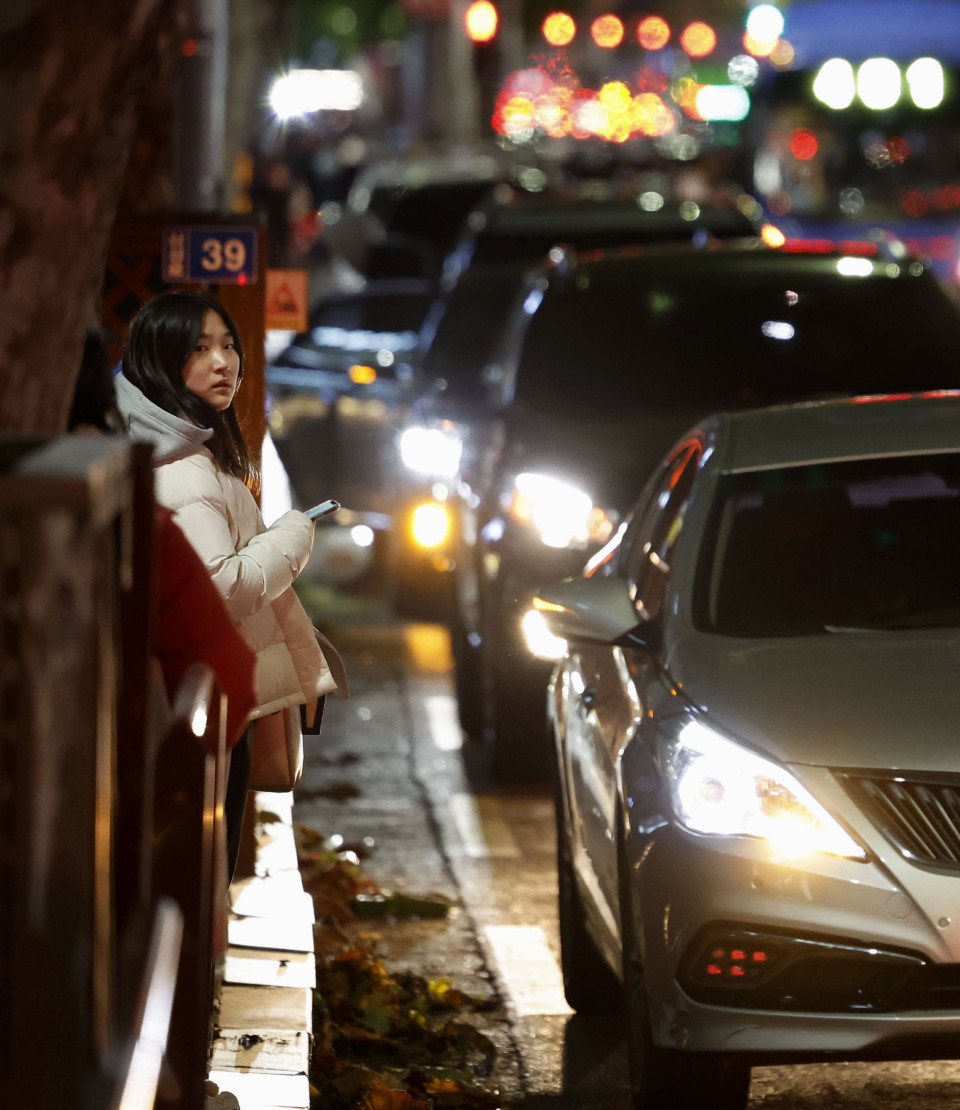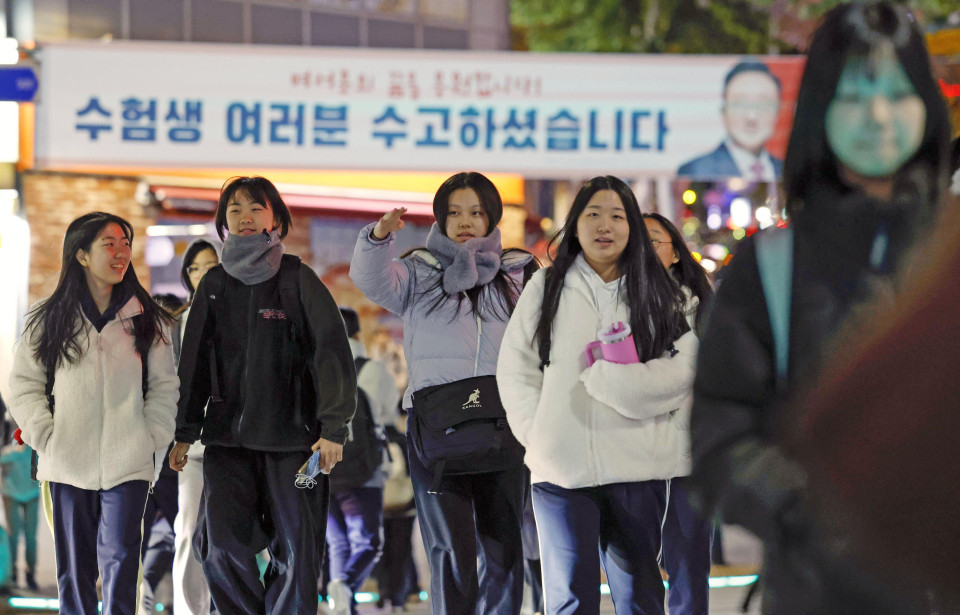South Korean parents often describe intense academic competition as “cram school warfare,” but the mounting pressure is pushing more young people to forgo parenthood — fueling the nation’s declining birthrate.
“This really is a war. There’s no turning back,” says Ahn Ji Won (pseudonym), 49, a mother who lives in the suburbs of Seoul, expressing her distress about the intense focus on academic achievement in South Korea.
The intense competition means even some preschool-age kids attend private tutoring centers for extra preparation, often at a great expense.

Photo taken on Nov. 18, 2024, shows a line of cars with parents waiting for their children to finish their cram school lessons in Gangnam, Seoul. (Kyodo)
According to the National Statistical Office, a total of 27.1 trillion won ($19 billion) was spent on sending elementary, junior high, and high school students to for-profit, private institutions called hagwons in 2023, up 4.5 percent from the previous year.
This was a record high for the third consecutive year, despite South Korea experiencing a declining birthrate. The monthly average per high school student amounted to 740,000 won.
Ahn’s family pays out about 6 million won per month for cram schools for their two children, the eldest of whom is aiming to enter medical school after once failing his entrance exam and having to wait another year. Their younger son is in junior high school.
Both she and her husband work — the latter for a life insurance company — but the outlay takes up more than 70 percent of the household budget. “I have regretted having children at times because I have not been able to prepare (financially) for my old age,” Ahn says.
Aside from the large sums of money many parents spend on private education, they also make huge sacrifices to support their children in any way they can in their studies.
It is common for students to change cram schools for different subjects. Indeed, there are even cram schools to enter other famous cram schools. On weekends and holidays, kids study from morning till night, with their parents occupied with transporting them to and from the schools.
In Daechi-dong, an affluent neighborhood in Gangnam, Seoul, where many major cram schools are located, the thoroughfare at night is gridlocked with cars driven by parents bringing their children home from the schools, their journeys accompanied by blaring traffic whistles of police. This regular scene has become known as “cram school hell.”
Ahn’s eldest son has been attending cram schools since elementary school. For junior high school, he would sleep less than five hours a night to prepare for his entrance exam. “The kids have absolutely no time to play, even on summer break,” she says.
Since having to take a year off to prepare after failing his first medical school exam, her son has entered a famous preparatory hagwon in Daechi-dong, which has a good track record for students successfully passing the exam.
In an attempt to even the playing field and lessen the need to engage in private education, former South Korean President Yoon Suk Yeol eliminated from 2023 extremely tough questions not covered by state schools from the country’s standardized university entrance exam, or the CSAT.
However, this has had no noticeable effect, as parents anxious about the change in trends are doubling down on cram school education.
“Thanks to the (former) president, private education has become even more energized,” Jeon Dae Geun, 42, a well-known entrance exam consultant and the president of HY Education, says sarcastically.

Photo taken on Nov. 18, 2024, after 10 p.m. of kids returning home en masse after cram school classes in Gangnam, Seoul. (Kyodo)
Consultants sell practice exams and preparation courses tailored to the school of choice to affluent clients, and the cost, under contract, is not cheap, ranging from 70 million to 100 million won per student per year. “The entrance exams are a battle of power for information,” Jeon says.
Jeon revealed he sometimes wines and dines admissions officials to obtain information on university selection criteria and trends and to scout them for his company.
A family’s financial position determines where their kids go to school and their future employment. Knowing firsthand the immense pressure put on parents to foot the bill for their children’s academic achievement, Ahn often gives cautionary advice to her junior coworkers.
“If you don’t want to give up your life, you shouldn’t have children,” she warns.
Related coverage:
FEATURE: Young South Koreans giving up on marriage amid economic pressures
Entrepreneur launches support service for int’l school kids in Japan